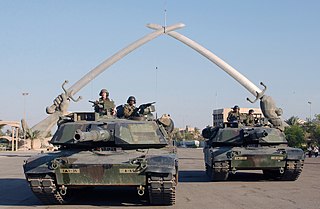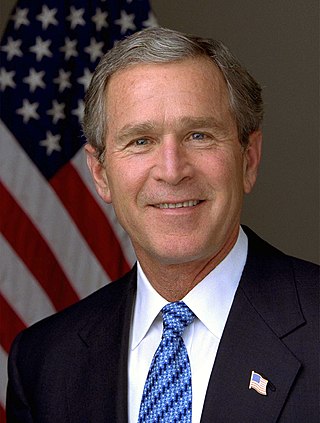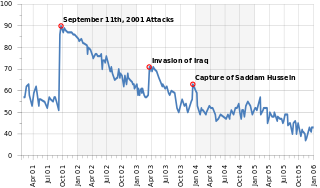
The United States public's opinion on the invasion of Iraq has changed significantly since the years preceding the incursion. For various reasons, mostly related to the unexpected consequences of the invasion, as well as misinformation provided by US authorities, the US public's perspective on its government's choice to initiate an offensive is increasingly negative. Before the invasion in March 2003, polls showed 47–60% of the US public supported an invasion, dependent on U.N. approval. According to the same poll retaken in April 2007, 58% of the participants stated that the initial attack was a mistake. In May 2007, the New York Times and CBS News released similar results of a poll in which 61% of participants believed the U.S. "should have stayed out" of Iraq.

In political studies, surveys have been conducted in order to construct historical rankings of the success of the presidents of the United States. Ranking systems are usually based on surveys of academic historians and political scientists or popular opinion. The scholarly rankings focus on presidential achievements, leadership qualities, failures and faults. Popular-opinion polls typically focus on recent or well-known presidents.

George Walker Bush is an American politician and businessman who served as the 43rd president of the United States from 2001 to 2009. A member of the Republican Party, he previously served as the 46th governor of Texas from 1995 to 2000.
Rasmussen Reports is an American polling company founded in 2003. The company engages in political commentary and the collection, publication, and distribution of public opinion polling information. Rasmussen Reports conducts nightly tracking, at national and state levels, of elections, politics, current events, consumer confidence, business topics, and the United States president's job approval ratings. Surveys by the company are conducted using a combination of automated public opinion polling involving pre-recorded telephone inquiries and an online survey. The company generates revenue by selling advertising and subscriptions to its polling survey data.

George W. Bush, the 43rd president of the United States, has elicited a variety of public perceptions regarding his policies, personality and performance as a head of state. In the United States and elsewhere, journalists, polling organizations and others have documented the expression of an evolving array of opinions of President Bush. Time magazine named George W. Bush as its Person of the Year for 2000 and 2004, citing him as the most influential person during these two years.

A convention bounce or convention bump refers to an increase in support that U.S. presidential candidates in the Republican or Democratic party typically enjoy after the televised national convention of their party. A presumptive nominee for president may also be said to experience a "VP bounce" after announcing his or her pick for vice president prior to the convention. The size and impact of convention bumps vary, but presidential candidates usually see at least a small uptick in their polling numbers coming out of their conventions.

The rally 'round the flag effect is a concept used in political science and international relations to explain increased short-run popular support of a country's government or political leaders during periods of international crisis or war. Because the effect can reduce criticism of governmental policies, it can be seen as a factor of diversionary foreign policy.
Former U.S. President Bill Clinton's public image is most notably characterized by high public approval ratings, aided by his youthful appearance, as well as his charismatic, and soundbite-ready style of speech. His personal background and lifestyle led to Nobel Prize-winning novelist Toni Morrison to call him the first "black president". Clinton was also dogged by investigations throughout his presidency, particularly of sexual misconduct, damaging the public's beliefs of his trustworthiness, though his approval ratings remained high, even as his impeachment trial continued.

Gallup was the first polling organization to conduct accurate opinion polling for United States presidential elections. Gallup polling has often been accurate in predicting the outcome of presidential elections and the margin of victory for the winner. However, it missed some close elections: 1948, 1976 and 2004, the popular vote in 2000, and the likely-voter numbers in 2012. The month section in the tables represents the month in which the opinion poll was conducted. D represents the Democratic Party, and R represents the Republican Party. Third parties, such as the Dixiecrats and the Reform Party, were included in some polls.

The 2016 United States presidential election in Iowa was held on Tuesday, November 8, 2016, as part of the 2016 United States presidential election in which all 50 states plus the District of Columbia participated. Iowa voters chose electors to represent them in the Electoral College via a popular vote, pitting the Republican Party's nominee, businessman Donald Trump, and his running mate Indiana Governor Mike Pence against the Democratic Party nominee, former Secretary of State Hillary Clinton, and her running mate Virginia Senator Tim Kaine. Iowa has six electoral votes in the Electoral College.
This article summarizes the results of polls taken during the presidency of Donald Trump which gather and analyze public opinion on his administration's performance and policies.
This is a list of opinion polls taken on the Presidency of Donald Trump in 2018.
This is a list of opinion polls taken on the presidency of Donald Trump in 2019. Polls throughout the year showed that more disapproved of Trump than approved of him, generally by a margin of between five and fifteen percentage points. The polls also showed that the margin may have been stronger or weaker in some states, when compared with the national polls.

President Ronald Reagan authorized the formation of his 1984 reelection campaign committee, Reagan-Bush '84, on October 17, 1983. He made the formal announcement of his candidacy for re-election on January 29, 1984. On August 23, 1984, he secured the nomination of the Republican Party at its convention in Dallas, Texas. The convention nominated Vice President George H. W. Bush as his running mate.

This is a list of opinion polls taken on the presidency of Joe Biden in 2021. To navigate between years, see opinion polling on the Joe Biden administration. For 2022 opinion polling, see 2022 opinion polling on the Joe Biden administration.

Joe Biden, the 46th president of the United States, has been in the national spotlight for over half a century, ever since he won his first election to the United States Senate in 1972. During his long tenure in the Senate, Biden was seen as a figure with the tendency to commit gaffes. He has been associated with working-class politics during his career, having been raised in a working-class family. A long-standing parody of Biden by The Onion, popular during his time as Barack Obama's vice president, is thought to have contributed positively to his public image. Biden's approval ratings as president have overall been highly polarized, with mixed support from Democrats and almost complete opposition from Republicans. As the oldest president in US history, Biden's age and health been the subject of discussion, with some polls finding the issue a subject of concern to a significant majority of Americans.

This is a list of opinion polls taken on the presidency of Joe Biden in 2022. To navigate between years, see opinion polling on the Joe Biden administration.
Since 1981, there has been opinion polling on the Ronald Reagan administration to gather and analyze public opinion on the performance and policies of the Ronald Reagan administration.

This is a list of opinion polls taken on the presidency of Joe Biden in 2024. To navigate between years, see opinion polling on the Joe Biden administration.
























